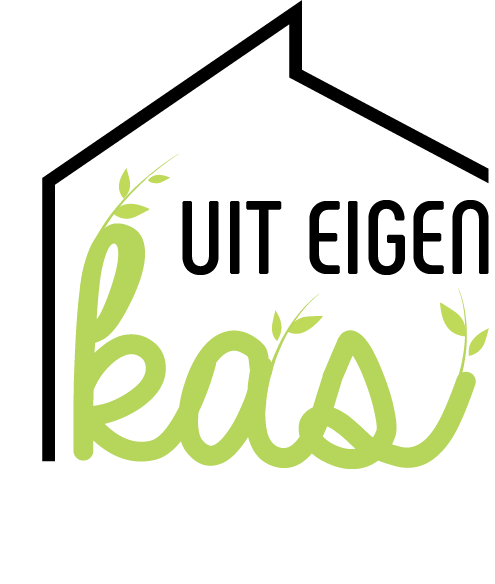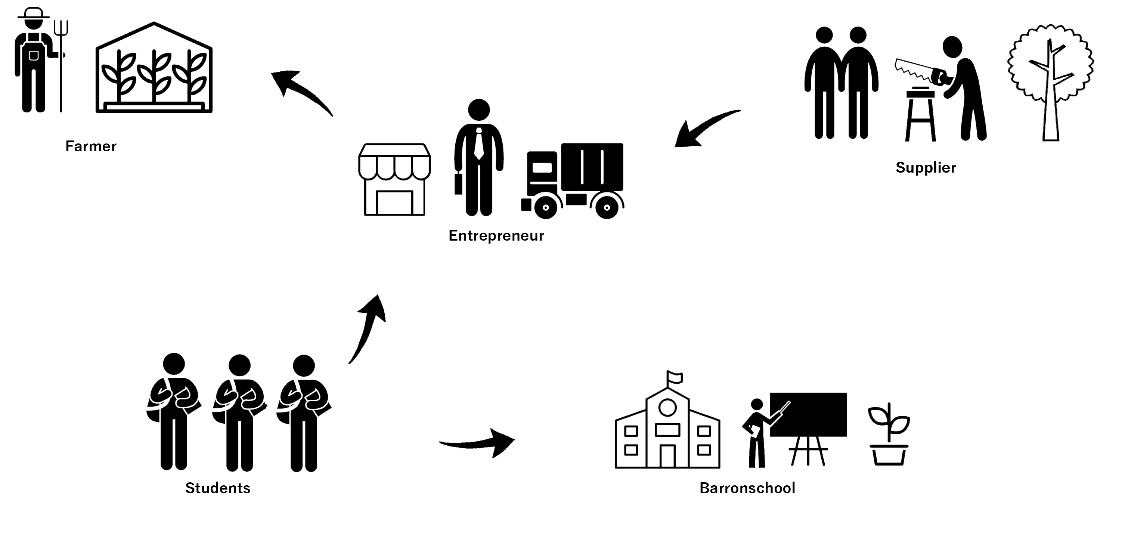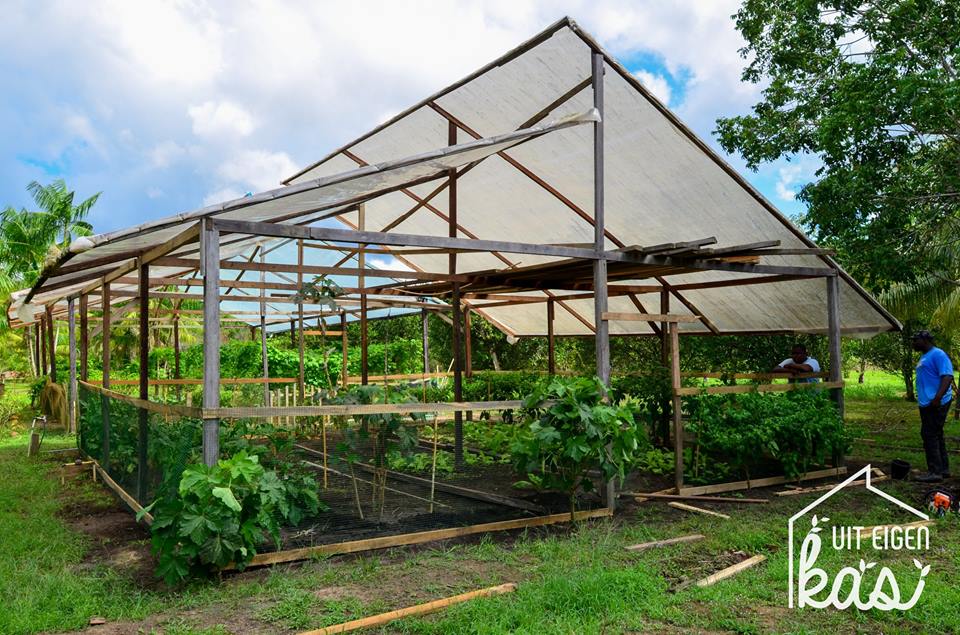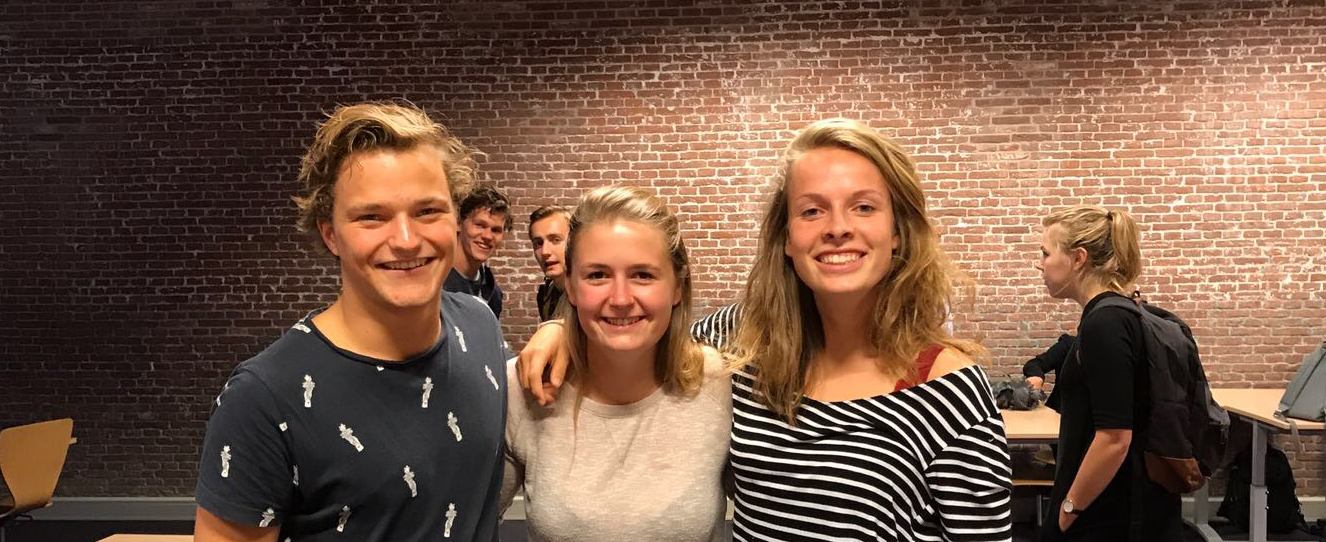Wooden Meccano Greenhouses

Wooden Meccano Greenhouses
Minor International Entrepreneurship & Development 2017
Location
Marowijne Region, Suriname
Students
Valérie de Vlam
Anne Roebroeck
Paul van Wiechen
Over the last years, the use of greenhouses in the agricultural sector of Suriname has proven to be lucrative but relatively undiscovered. Therefore, a group of 3 TU Delft students will help local Surinam entrepreneurs in the setting up of a small company called “Uit eigen kas” which will sell sustainable meccano greenhouse packages to local farmers. For half a year, they will design an easy-to-use manual for the construction of wooden greenhouses and find an entrepreneur who is interested in delivering wooden meccano packages with this manual to local farmers.

Information about the project
In 1915 bauxite was discovered in the Marowijne region. This is a mineral which is the main source for aluminum. Thanks to the mining and selling of Bauxite, Surinam’s economy flourished and a lot of job opportunities were created. In the late 20th century, however, the bauxite sources got depleted and the mine and factory were forced to shut down. Since then, the economy stagnated and a solution had to be found. Farming in the Marowijne region proved to be this solution. Over the past years, people discovered that the use of greenhouses improved the yield substantially. As a result Surinam farmers have become more and more interested in the use of greenhouses. Two years ago, a group of 4 students designed a cheap, sustainable and easy-to-build greenhouse. This added poorer farmers to the market. Last year’s group investigated the demand for greenhouses among the farmers. The result was promising: there was a great amount of interested farmers. It is this year’s group’s aim to deliver IKEA-like packages consisting of all necessary materials to local farmers with a manual so that they themselves can construct the greenhouse. This aim will be achieved by setting up a small company which creates the packages and sell these packages to the farmers. By doing so, they hope to scale up the use of greenhouses in the Marowijne region and by doing so stimulate the economy and local entrepreneurship.
The problem
After the Alcoa mines got depleted in the late 20th century and the factory was forced to shut down, Marowijne’s economy stagnated and Moengo became the victim of poverty and unemployment. Foundation SOIL Masonkondre discovered that agricul-ture was to be the solution for the stagnating economy. Project Greenport Marowijne was set up by SOIL with the aim of stimulating farming in the region. By increasing Marowijne’s production substantially farming could eventually be the solution for the problems of Marowijne: unemployment, poverty and a severely damaged economy
Mission Statement
The mission statement of this project is the following: “Improve Marowijne’s economy and agriculture by setting up a local enterprise specialized in the selling of green-house building packages”. Over the past years the use of greenhouses in Marowijne has proven to be lucrative for farmers. Still, the greater number of farmers uses old farming techniques and therefore business opportunities present themselves. Nowadays greenhouses, both the wooden and metal types, are too expensive and require professional aid during construction. We will offer low-cost and easy-to-build green-houses. By setting up a enterprise in cooperation with locals we hope to stimulate the use of greenhouses among farmers over the long term.

Planning
Our planning based on our three main activities:
Redesigning the greenhouse of Hendrik Pinas
Week 1-5 Optimisation greenhouse into a meccanno package
Week 6 Construct an instruction manual
Start an enterprise
Week 7 Find supplier and a local entrepreneur
Week 9 Work out a strategy, business plan for the enterprise
Week 11 Order first meccanno package and create awareness on Agri Fair
Week 12 Teach farmers how to build the meccanno packages
Week 13 Farmers start building the first greenhouses
Find suitable customers
Week 8 First customers in scope
Continuation
When we leave the enterprise shall continue selling greenhouses to farmers. 3 months will prove to be too short a time to ensure the ability of the entrepreneur to work independently. Therefore, 2 students of the AERES Academy Dronten will continue with our project directly after we leave. After these 6 months, SOIL will keep monitoring the enterprise but it will be up to the entrepreneur himself to ensure the long-term stability of the company.
Students
The TU Delft team consists of 3 students. Valérie de Vlam, Anne Roebroeck and Paul van Wiechen see it their task to promote the greenhouse use in Surinam and aim to help as many farmers as possible within the limited timespan. After the visit, they hope to have set up a stable company which will continue selling greenhouses to locals. After their departure in January, students from AERES Hogeschool Dronten will continue where the three left off and ensure an improvement in the agricultural sector of Surinam!

Evaluation
The mission of this project was to set up an entreprise in cooperation with local people in Marowijne, Suriname . The entreprise had to offer low-cost and easy-to-build greenhouses. With this entreprise the aim was to stimulate the use of greenhouses among farmers over the long term.
The Enterprise
- In de first phase of the project a local entrepreneur was found, named Ken Doorson. He has a lot of experience with greenhouses and setting up businesses.
- The second phase was the design of the greenhouse. 2 years ago a group of 4 TU Delft stu- dents designed a wooden greenhouse at a local farm in Marowijne. It occured that the green- house wasn’t stable enough and even succumed at a few places. It was our task to optimalize this greenhouse in a way that it would be stable. Afterwards an instruction manual was made.
- The third phase was to write a business plan. Together with Ken a lot of creative sessions were being held to decide which parts we would adopt in our business. The plan is completed and consists out different parts: a financial plan, a future plan, a return model, a marketing plan, a production plan and a list of potential buyers of our greenhouse.
Location
The next step was to find a location in Moengo.
This location would in the first place serve as a storage for the greenhouse packages.
In the second place, a wooden greenhouse of 8 x 14 meters was set up at the location. This greenhouse will serve as an example for potential buyers. The greenhouse will also serve as a place where potential buyers have the opportunity to receive support with farming their first crops. In this greenhouse they will learn by doing what the advantages are of farming in a greenhouse.
Continuation
When we leave, the enterprise shall start selling greenhouses to farmers. From a special fund from the Netherlands, called Students4Sustainability we had the chance to give two greenhou- ses to the entreprise. These packages are ready for sale.
SOIL Masonkondre will keep monitoring the enterprise but it will be up to Ken Doorson himself to ensure the long term stability of the company.